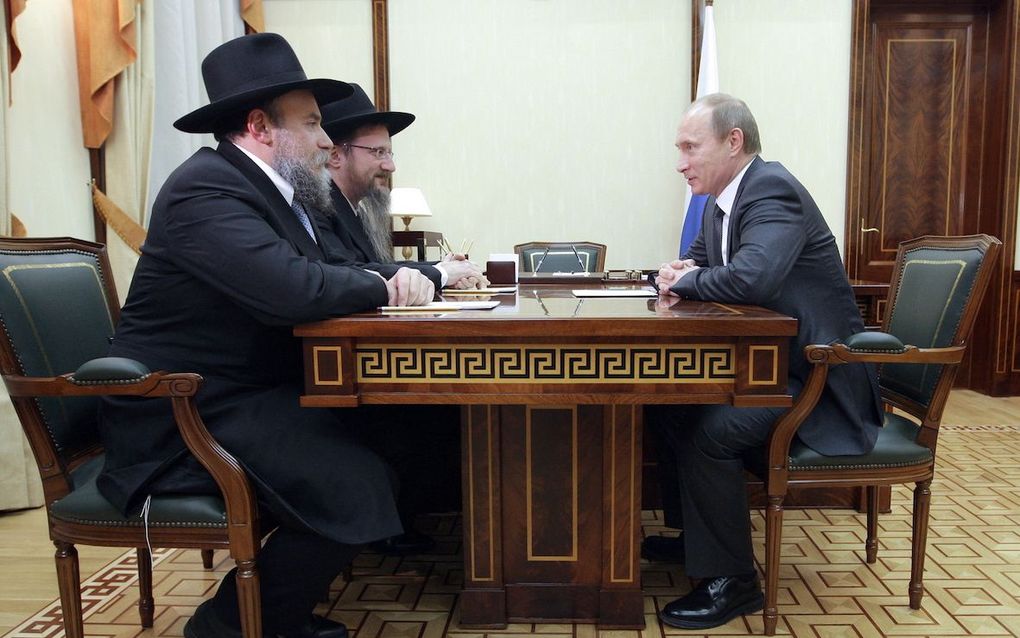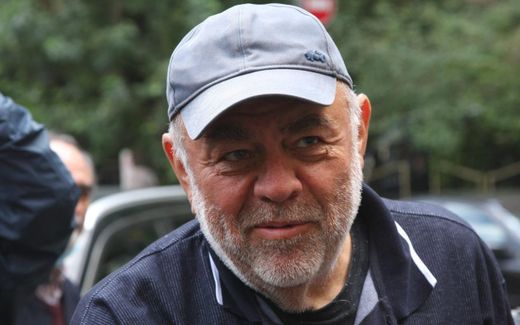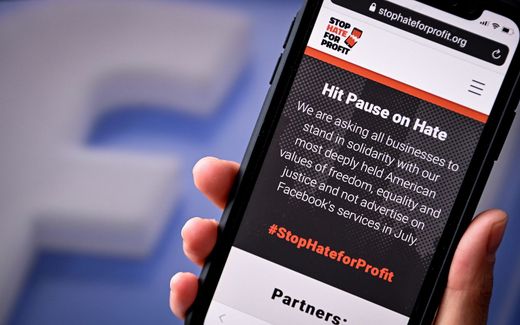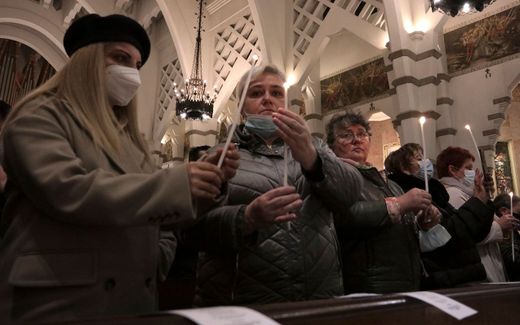Jewish leader in Russia complains about “Russophobia”

Alexander Boroda (left) on a visit at President Putin. Photo AFP, Alexey Durzhinin
Central Europe
The leader of the Russian Jewish Community says he is outraged by “Russophobia” in Europe. Alexander Boroda has seen that growing during the military operation in Ukraine.
In an interview with Interfax, he says there is “no justification or explanation for this; it’s unacceptable at any level.”
Boroday is president of the FJCR (Federation of Jewish Communities of Russia). He mentions several examples of Russophobia. For instance, a restaurant owner in Germany refused to serve Russians. The fact that the restaurateur was later rebuked on social media shows that such Russophobic manifestations are far from mainstream.
Boroda also mentioned an Internet clip showing a shop selling Russian goods in Germany, on which paint was thrown and whose windows were smashed. “I’d really like to believe that this is not true. Because it was precisely the Crystal Night, or the Night of Broken Glass, that preceded the long years of Nazi triumph,” he said.
According to Boroda, not everything said concerning military actions is true. He says that last week’s reports about a missile strike on the Holocaust monument Babi Yar in Kiev were not true, since it “actually never happened.”
The Jewish leader in Russia says people should be careful with information. “The pandemic played a dirty trick in this case. People have gotten accustomed so much to living in a virtual world that they completely forget sometimes that an event is not just a Facebook post or a tweet; it should have factual confirmation, objective evidence,” Boroda said.
He said he hoped journalists and bloggers would treat history with more respect. Numerous speculations on the Jewish subject will stop. He agrees with the Russian leadership there is growing “neo-Nazism” in Ukraine and “systematic glorification of Nazi criminals”.
Mistrust won’t shorten war
Last week, also a commentator in the Neue Zürcher Zeitung referred to the incident with the German restaurant. He mentions other examples, for instance, that the Russian liquor vodka is taken from the shelves. The author, Alexander Kissler, says this trend is not without danger, since “this won’t stop in the theatres and music classes” but will grow into a “waterfall of mistrust”. It won’t shorten the war for a minute, Kissler writes.
Related Articles






